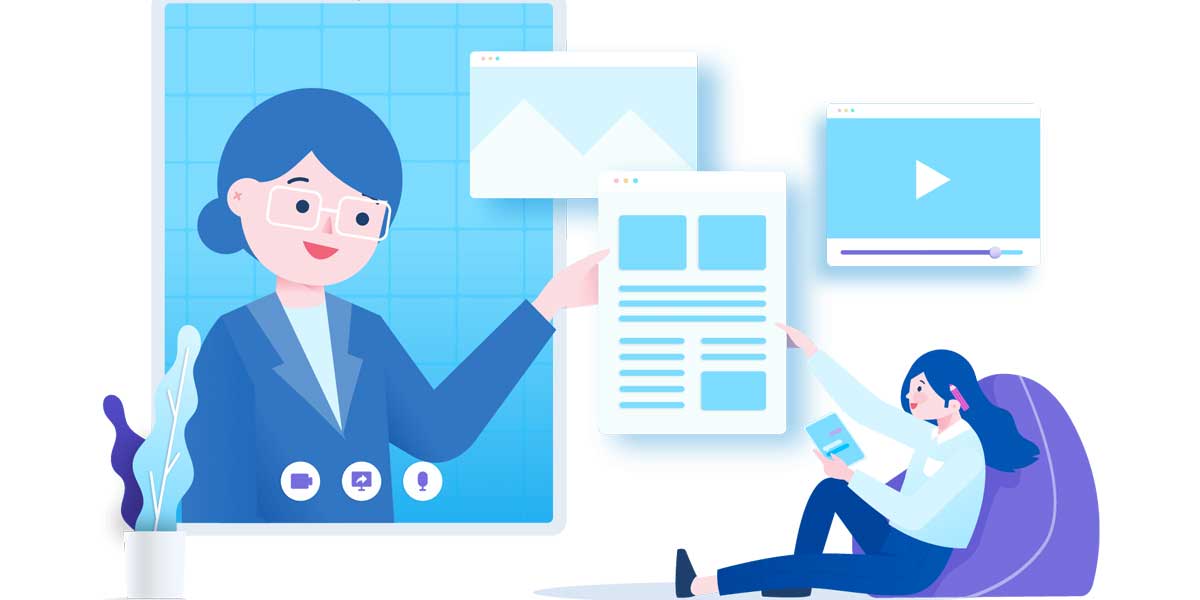In the dynamic landscape of business, small enterprises face unique challenges in providing effective and tailored learning solutions for their employees. This is where LMS for Small Businesses come into play, offering a customized approach to learning that fits the specific needs of small businesses. Let’s delve into the world of LMS and explore how it can be a game-changer for your small business.
In a nutshell, a Learning Management System (LMS) is a software application designed to deliver, track, and manage training and learning programs. For small businesses, the traditional one-size-fits-all approach to training may not be the most efficient or cost-effective. LMS, on the other hand, allows businesses to tailor learning experiences to match their unique requirements.
Challenges Faced by Small Businesses
Limited Budget
Small businesses often operate with tight budgets, making it challenging to invest in elaborate training programs. LMS offers a cost-effective solution, eliminating the need for extensive physical resources and trainers.
Diverse Learning Needs
Unlike larger corporations with standardized training processes, small businesses often have diverse learning needs among their employees. LMS allows for the creation of customized content that caters to different roles and skill sets.
Time Constraints
In a fast-paced business environment, time is of the essence. LMS enables employees to access training materials at their convenience, eliminating the need for synchronous learning and accommodating busy schedules.
Benefits of LMS for Small Businesses
Cost-effectiveness
Implementing traditional training methods can incur significant costs. LMS reduces expenses related to venue rentals, printed materials, and travel, making it a cost-effective solution for small businesses.
Customization Options
One of the significant advantages of LMS is its ability to deliver personalized learning experiences. Small businesses can create content that aligns with their specific industry, values, and goals.
Time Efficiency
With LMS, employees can learn at their own pace. This flexibility not only ensures better retention of information but also allows employees to balance learning with their regular work responsibilities.
Choosing the Right LMS for Your Business

Assessing Learning Needs
Before selecting an LMS, it’s crucial to identify the specific learning needs of your employees. Understanding the skills and knowledge gaps will help in choosing an LMS that addresses these areas.
Budget Considerations
While cost-effectiveness is a key benefit, it’s essential to consider the initial setup costs and ongoing maintenance fees. Finding an LMS that aligns with your budget is paramount.
Scalability
As your small business grows, so will your workforce. Ensure that the chosen LMS is scalable and can accommodate an expanding number of users without compromising performance.
Implementation Process
Training and Onboarding
Smooth onboarding is essential for the successful implementation of an LMS. Providing adequate training to employees on how to use the system ensures a seamless transition.
User-friendly Interfaces
The user interface plays a significant role in the overall user experience. Opt for an LMS with an intuitive design that minimizes the learning curve for users.
Troubleshooting
Anticipate potential issues and have a troubleshooting plan in place. Efficient technical support is crucial to address any challenges users may encounter.
Case Studies: Successful Small Businesses Using LMS
Real-world Examples
Examining how other small businesses have successfully implemented LMS can provide valuable insights and inspiration for your own strategy.
Positive Outcomes
Explore the positive impacts of LMS on employee performance, knowledge retention, and overall business success.
Measuring Success: Key Metrics
User Engagement
Monitor user engagement metrics to gauge the effectiveness of your LMS. Analyze participation rates, completion times, and feedback.
Knowledge Retention
Assess the retention of knowledge over time. Regular assessments and quizzes can help measure how well employees retain the information provided through the LMS.
Return on Investment (ROI)
Evaluate the ROI by comparing the costs of implementing the LMS with the benefits gained, such as increased productivity and improved employee performance.
Adapting to Change: Upgrading Your LMS
Technological Advancements
Stay abreast of technological advancements in the LMS landscape. Upgrading your system ensures access to the latest features and improvements.
Regular Updates
Choose an LMS provider that regularly updates its software to address security concerns, improve functionality, and enhance the user experience.
Future-proofing
Consider the long-term viability of the chosen LMS. Opt for a solution that can adapt to evolving business needs and technological advancements.
User Experience and Interface Design

Importance of Intuitive Design
A user-friendly interface is crucial for encouraging engagement. Employees should be able to navigate the LMS effortlessly.
Accessibility Features
Ensure that the LMS accommodates employees with diverse abilities. Accessibility features contribute to a more inclusive learning environment.
Mobile Responsiveness
In an era of remote work, mobile responsiveness is key. An LMS that works seamlessly on various devices enables learning on the go.
Ensuring Compliance and Security
Regulatory Requirements
Small businesses must adhere to specific regulations. Choose an LMS that facilitates compliance with industry standards and regulatory requirements.
Data Protection Measures
Safeguarding sensitive data is paramount. Verify the security features of the LMS, including data encryption and secure user authentication.
Cybersecurity Considerations
As cyber threats evolve, prioritize an LMS with robust cybersecurity measures to protect your business and employee data.
LMS Integration with Other Business Systems

Seamless Workflow
Integrating the LMS with other business systems streamlines operations. Ensure compatibility with existing tools for a seamless workflow.
Enhancing Productivity
An integrated approach enhances overall productivity by reducing the time and effort required to manage different aspects of the business.
Streamlining Operations
From HR processes to performance management, an integrated LMS contributes to the overall efficiency of business operations.
Feedback and Continuous Improvement
Gathering User Feedback
Encourage employees to provide feedback on the LMS. Use this information to make continuous improvements and enhance the user experience.
Iterative Improvements
An iterative approach to LMS improvement allows for ongoing enhancements based on user needs, technological advancements, and changing business requirements.
Enhancing the Learning Experience
Ultimately, the goal is to continually enhance the learning experience for employees, ensuring that the LMS remains a valuable tool for professional development.
LMS for Remote Work and Global Teams
Facilitating Remote Learning
With the rise of remote work, LMS becomes an essential tool for delivering consistent training experiences to employees regardless of their location.
Overcoming Geographical Barriers
Small businesses with global teams can use LMS to overcome geographical barriers, fostering a unified learning culture.
Cultural Considerations
Consider cultural differences when designing learning content. LMS allows for customization that takes into account the diverse backgrounds of your workforce.
Common Misconceptions about LMS for Small Businesses
Dispelling Myths
Address common misconceptions that may hinder the adoption of LMS in small businesses. Education and clarification are key to overcoming resistance.
Addressing Concerns
Listen to concerns raised by employees and management. Provide transparent communication about the benefits of LMS and how it addresses specific concerns.
Clarifying Misconceptions
Clear communication is crucial in dispelling any misunderstandings about LMS functionality, purpose, and impact on daily operations.
Conclusion
In conclusion, adopting an LMS tailored for small businesses is a strategic investment in the growth and success of your organization. The ability to customize learning experiences, address specific challenges, and adapt to the evolving needs of your workforce makes LMS a valuable asset. Embrace the transformative power of LMS and witness positive changes in employee performance, knowledge retention, and overall business efficiency.
